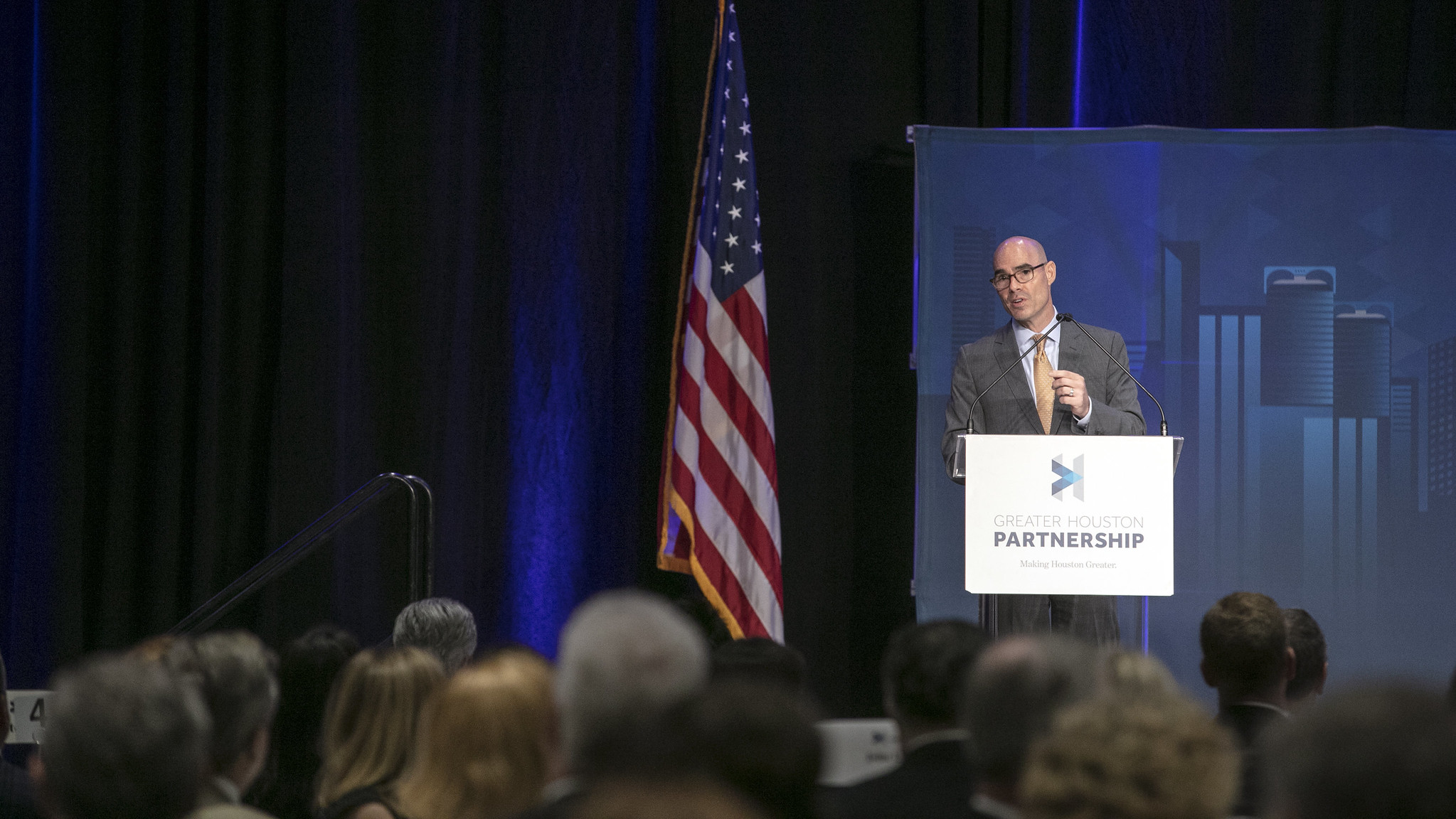Resiliency, Education Among Major Issues Discussed at Inaugural State of the Houston Region
Published Sep 12, 2019 by A.J. Mistretta
Texas House Speaker Dennis Bonnen highlighted some of the more significant legislation affecting the Houston area to come out of the 86th Legislative Session at the Partnership’s inaugural State of the Houston Region event on Sept. 10.
“The most important thing this legislative session was working together,” Bonnen told the crowd of roughly 400 guests gathered at NRG Center. He said that he along with Governor Greg Abbott and Lt. Governor Dan Patrick worked side by side to move important bills forward. That cooperative approach also played out in the House and Senate. “We needed to tackle big issues and bring solutions to the people of Texas. That’s what you saw, that’s what we delivered.”
One of the most important ways that cooperation played out was with the state’s budget, Bonnen said. Though Gov. Abbott has line-item veto power over the state’s $250 billion budget, Bonnen said he was proud that the Governor didn’t exercise that power but instead took ownership of the budget that they had worked on together.
“The budget we passed is not only a balanced budget, it’s also fiscally responsible,” Bonnen said.
Some of the high points from the budget, and the session as a whole, Bonnen highlighted include:
• An $11.6 billion public school finance package. More details here.
• $56 million to eliminate the backlog of untested rape kits across the state
• $27.8 million in new dollars for human trafficking investigation squads
• $210 million to improve staffing and technology in Department of Public Safety offices statewide
• $2 billion from the state’s Rainy Day Fund for Hurricane Harvey recovery and future flood mitigation
• Legislation placing Proposition 8, a state constitutional amendment, on the November ballot. Prop 8 would create the Texas Infrastructure Resiliency Fund that would provide matching dollars for Texas communities recovering from natural disaster to draw down federal funding.
Speaking just a couple weeks after the two-year anniversary of Hurricane Harvey that devastated large parts of the Houston region, Bonnen said making Texas more resilient was a major priority of lawmakers. “We know there will be another natural disaster in Texas, we just don’t know when or where,” he said. “The Legislature made sure we are better prepared for the next event. That’s what good government is all about.”
In introducing the event designed to discuss regional issues, Partnership President and CEO Bob Harvey pointed out that the organization’s efforts extend well beyond Houston and Harris County.
Without the work happening in the business parks, industrial complexes and ports across all 11 counties, our regional economy would be nowhere near as robust as it is today,” Harvey said. “Consider if you will that approximately one-third of our region’s workforce of 3.3 million resides outside of Harris County. And if the 10 collective counties outside of Harris were a state, its GDP would rank 39th in the nation, behind Hawaii and ahead of New Hampshire and Delaware.”
Click here for the Partnership’s Legislative Session Summary. Click here for a look at the counties in the Greater Houston region.
 The Houston Report
The Houston Report





















